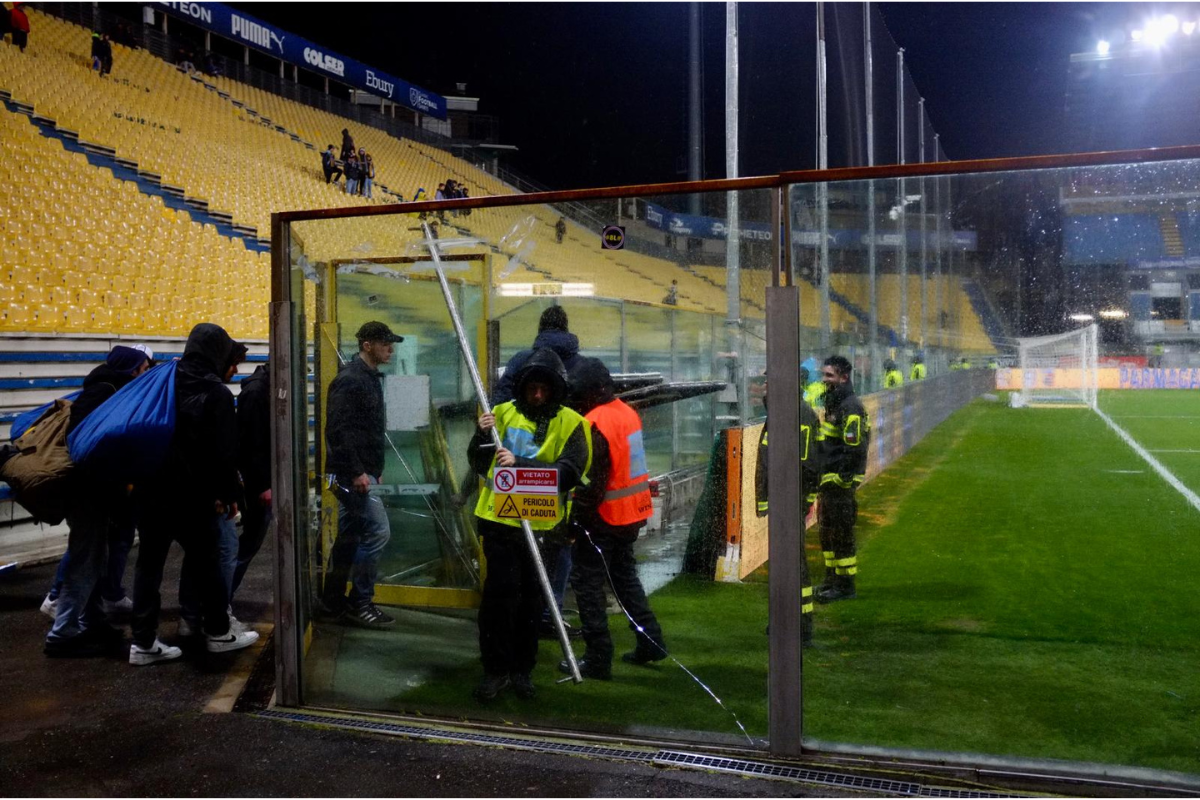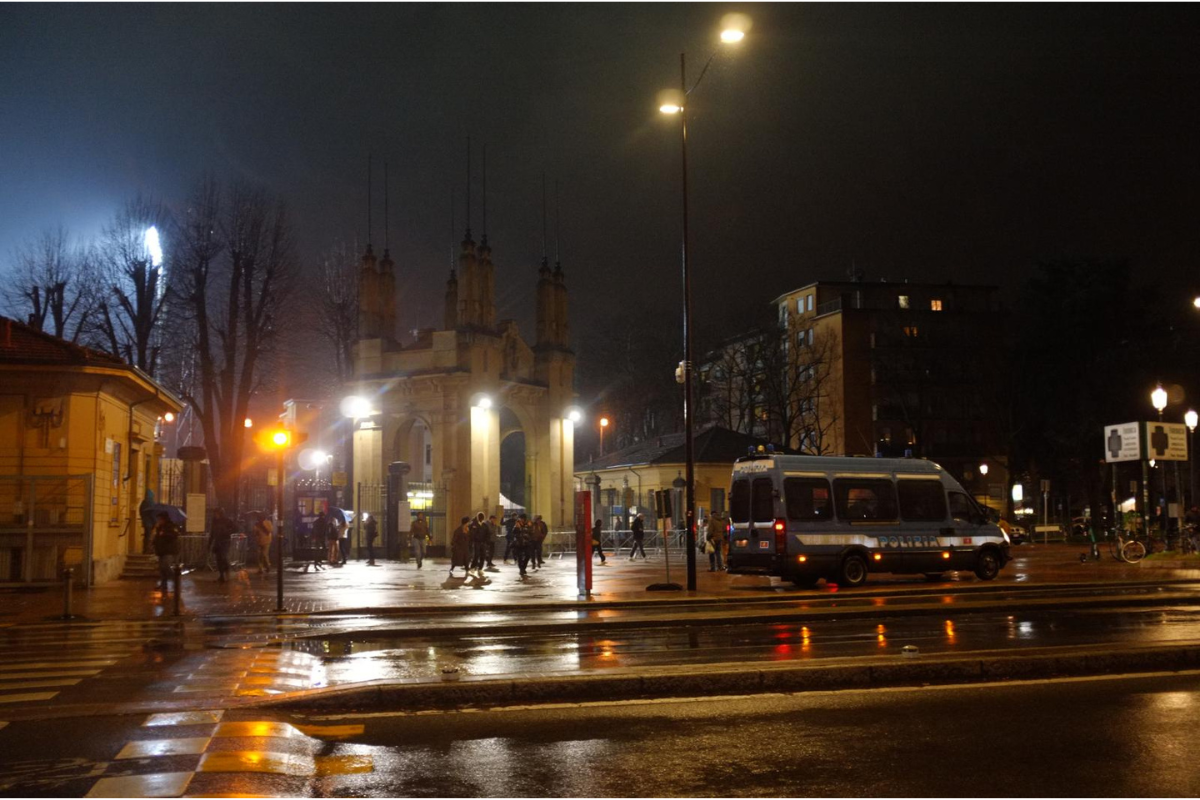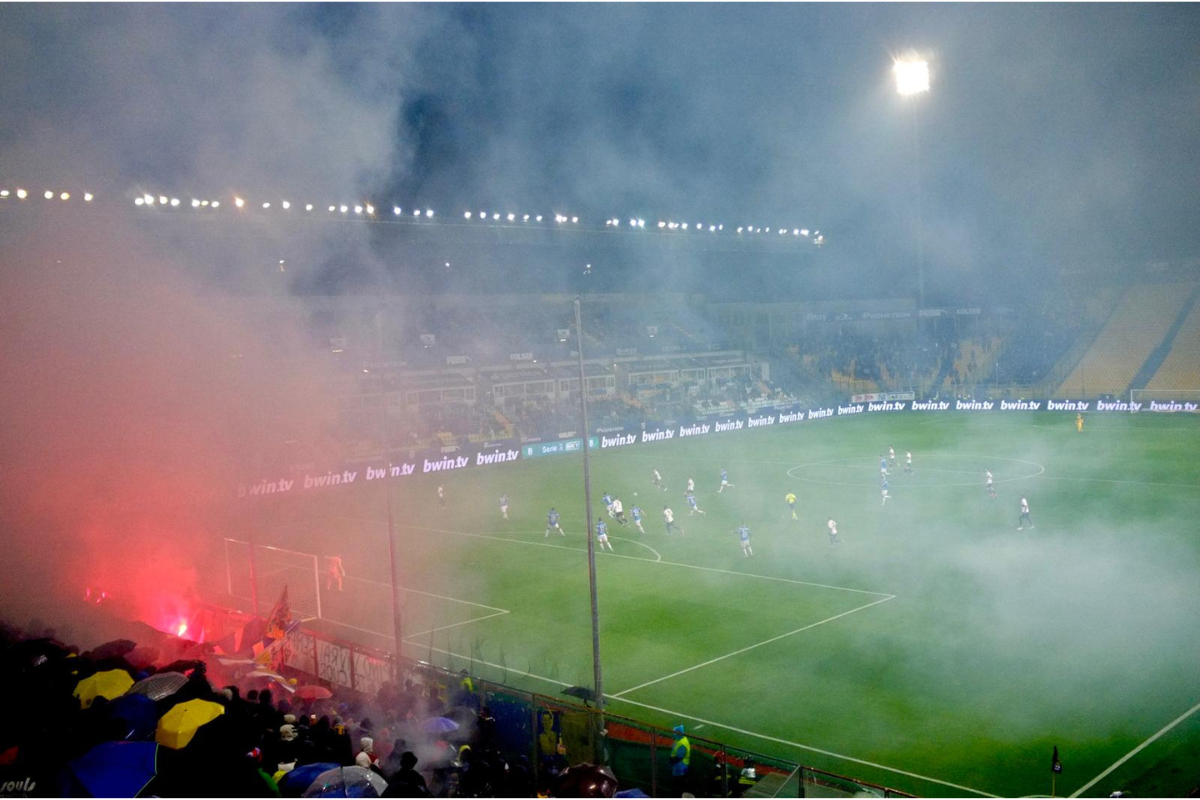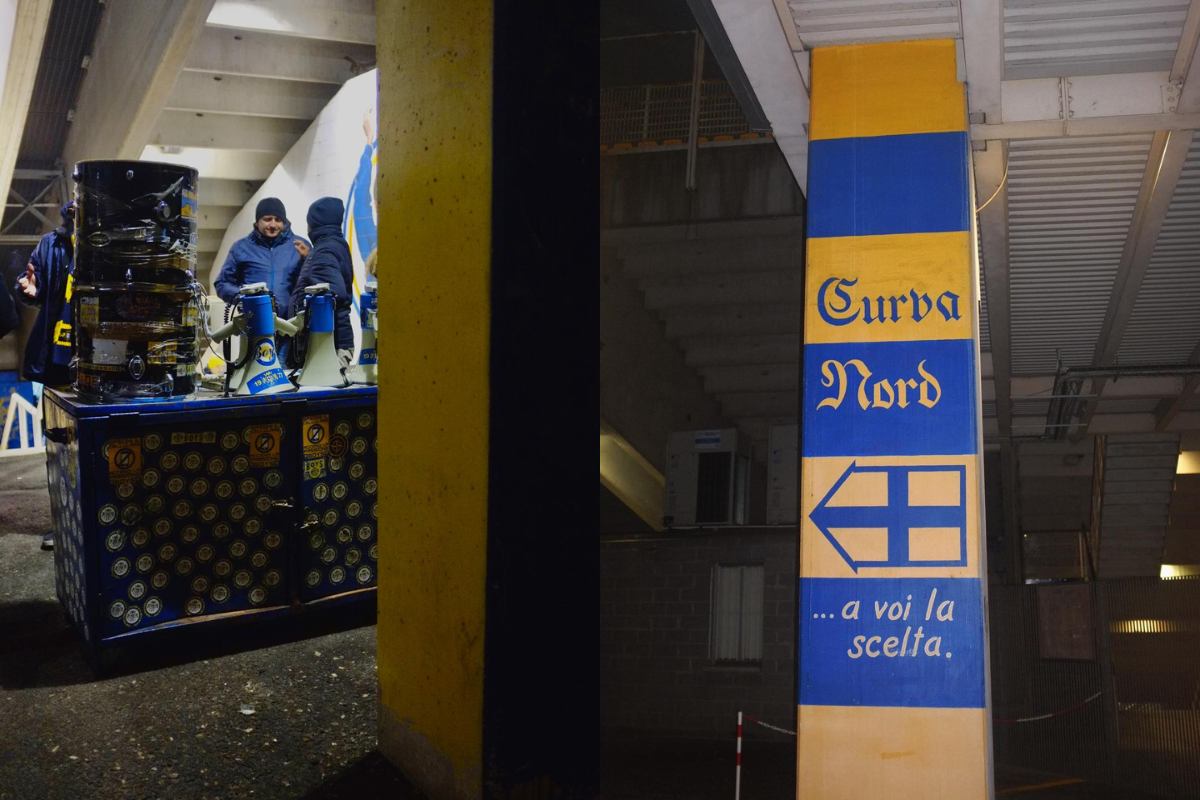Parma: Back in the big time

Image: Lewis Urquhart (@calciolewis)
Football hipsters rejoice. Parma are back in Serie A. Get the classic jerseys out, play the grainy footage of Crespo and Chiesa; we’re having a party.
After a near miss in last season’s playoffs, a 1-1 draw at Bari gave i Crociati a hard-fought promotion on Labour Day.
For those outside Italy, any knowledge of Parma almost certainly comes from the Football Italia days, which coincided with the club’s rapid rise and sharp fall.
Standing on the shoulders of dairy giant Parmalat, novice coach Nevio Scala built a team worthy of cult status, taking them from Serie B to winning Coppa Italia, Cup Winner’s Cup and UEFA Cup in six years between 1989-95, before another few years of glory under Alberto Malesani at the turn of the millennium.
It has been an eventful two decades since Tanzi abandoned what had become a flaming wreckage that once promised so much.
The subsequent instability brought about by Parmalat’s declining financial situation and subsequent bankruptcy is arguably still felt at the club today.
By April 2004, Calisto Tanzi’s Parma-Parmalat odyssey lay in tatters. An allegedly fraudulent €14bn hole in Parmalat’s accounts forced it into bankruptcy, taking the football club with it.
Reformed in summer 2004, Parma remained in Serie A thanks to the Marzano Law which allowed for a restructuring of Parmalat, therefore saving the club from relegation to Serie D. However, they re-appeared as a poor imitation of the gialloblù hoops that threatened to smash the Milan-Inter-Juventus axis in the late 90s.

Relegated in 2008, back to A in 2009, bankrupt and sent to Serie D in 2015, back in Serie A by 2018, back to B in 2021; it has been an eventful two decades since Tanzi abandoned what had become a flaming wreckage that once promised so much.
The current guardian/owner is a very different man. Like many clubs, Parma have benefitted from the recent stream of US investment into the Italian game.
In Kyle J. Krause, Parma have what appears to be a more sensible head than Tanzi, and more competent than his replacement, Tommaso Ghirardi.
The American businessman has overseen the creation of a team built to withstand the rigours of Serie B, escape it, and make a fist of Serie A.
Though his first season ended in relegation, his almost four-year tenure as Parma owner has to be considered a success.
The team he inherited had just lost Dejan Kulusevski (end of loan) and Matteo Darmian, but signs of that failed 2020-21 season are seen throughout this current team in players like Dennis Man, Valentin Mihaila, Yordan Osorio and more.

Fabio Pecchia was granted another season to take the club back to where it, and most others, feel they belong. Faith that the squad built over three years had enough to go up remained, but that faith had been tested.
The manner in which their 2022-23 season ended could have been fatal for some managers. Leading 2-0 in Cagliari at half-time, an injured Gigi Buffon left the pitch for the last time as a professional footballer. By full-time, Cagliari had won 3-2 and played out a quiet 0-0 a few days later.
Less than twelve months later, Pecchia is about to claim another promotion to Serie A, having left Cremonese for Parma after guiding them up in 2022.
Pecchia has rotated at times throughout this season; a mix of managing players’ fitness and indecision around the optimal formula for his best XI.
Captained by Enrico Delprato and powered by goals from Man, Mihaila and Adrian Benedyczak, all of whom joined 2021, it seems that faith has paid off for Parma. Throw in the creative vision of Adrian Bernabé too; a player with a bright future after signing from Man City in…2021.
Rather than tearing everything down, Parma played the long game and it should set them up nicely for next season.
It would be prudent to improve in certain areas; goalkeeper, left-back and centre-midfield would feature high in my list. Still, this is a team you can’t help but like.
Enjoying this article? Sign up to our free newsletter on this page!
Provided they can reinforce, we should see this team mostly kept together next year, as its hard work over the past three years merits a crack at Serie A.
Pecchia has rotated his midfield, full-backs and even attackers at times throughout this season; a mix of managing players’ fitness and indecision around the optimal formula for his best XI.
While seeing inconsistency in the lineup may have frustrated at times, and it’s safe to say it didn’t always work, it has allowed them to remain fresh going into the final weeks of the season.
Last weekend’s game against Lecco was a prime example. A banana skin of the highest order. Playing the last-placed team at home, who knew that anything other than a win would see them relegated.
They did what others couldn’t.
Rather than fall into the trap of playing conservative enough to ‘just win’, Parma blew Lecco away inside half an hour and eventually won 4-0. The gulf in class (and fitness) told.
That win, plus Venezia’s loss at Catanzaro hours before Parma faced Bari on Wednesday meant that all they needed was a point, and they duly delivered. Nervy, but job done.
Being the best team in Serie B has never been about beating teams by three or four goals every week, because it just doesn’t happen. In a league where two points per game is a promotion guarantee,

They did what others couldn’t. While promotion may have been mathematically secured at Bari, it was nights like Friday 8th March that defined their season.
Trailing at half-time against Brescia, a wet Stadio Ennio Tardini started to feel the weight of being league leaders for the first time. Their boys had struggled, with Benedyczak missing a penalty moments before the break just to add to the feeling that it wasn’t to be their night.
Minutes into the second-half, the tide turned when Dennis Man seized on a momentary lapse in Brescia concentration and finished like a footballer playing above their level.
After surviving the Brescia reaction to Man’s equaliser, Parma set about finding a winner. A slice of luck in the form of Melvin Huard talking himself into a red card in the 87th minute gave Parma another shot in the arm, at which point captain Delprato stepped up.
For now, it’s a case of enjoying their success; but this is a club which is all too familiar with the concept of pride coming before the fall.
The right-back appeared in the middle of Brescia’s penalty area almost immediately after the red card and headed in the decisive goal, three weeks after scoring a last-gasp winner against Pisa. Two points turned into six thanks to Parma’s captain leading by example.
It says a lot about a team that news of them losing a game is met with real surprise. It makes sense, given they have only lost four times this season. Venezia, Lecco, Modena and Catanzaro the only sides to do so, with the latter being the only loss at the Tardini.
That loss to Catanzaro on Easter Monday convinced Pecchia to tinker ahead of a trip to Sudtirol, which ended 0-0 and prompted the first suggestions that the pressure might be getting to the league leaders.
Eight points in four games since suggests otherwise. They will have to negotiate a tough home game against Cremonese and derby against Reggiana on the final day, but four points will guarantee them the title to top off a wonderful season.

The city that gave the world Giuseppe Verdi and Parmigiano-Reggiano deserves Serie A football, and now it has it again.
If Parma can approach this summer sensibly, they can have a team capable of achieving comfortable safety next season, which would provide them with a platform upon which they can build towards re-establishing themselves as a Serie A club.
For now, it’s a case of enjoying their success; but this is a club which is all too familiar with the concept of pride coming before the fall.
While chasing scudetti may be a nostalgic dream, there is no reason we shouldn’t be seeing that famous yellow and blue on our screens for years to come.
Away with the boom and bust cycle, in with some stability.